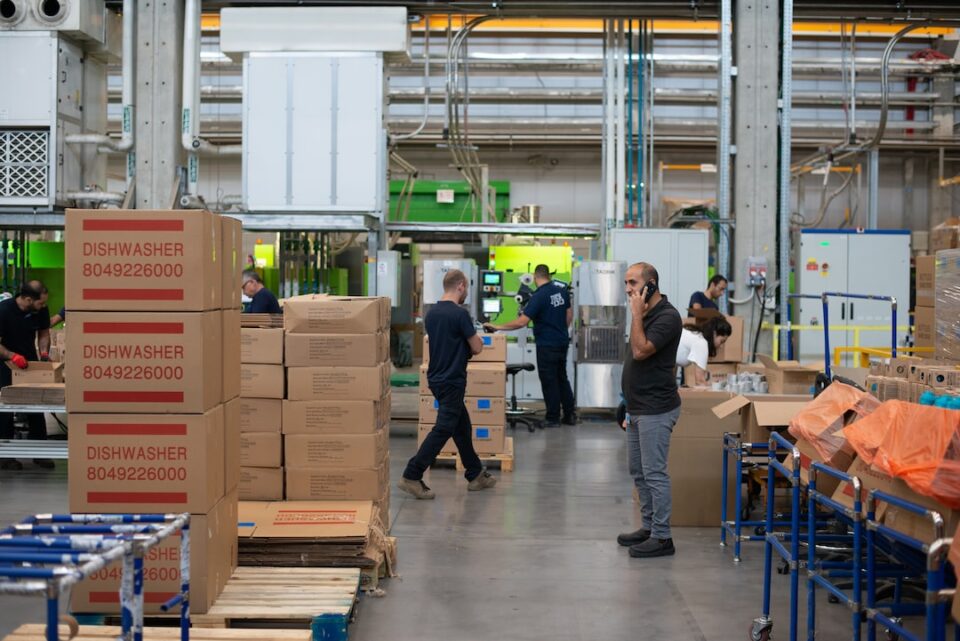The Impact of Artificial Intelligence on Factory Automation
The rapid development of Artificial Intelligence (AI) has made significant changes in various industries, and factory automation is no exception. The integration of AI technologies with automation systems has revolutionized the manufacturing process, leading to increased productivity, reduced costs, and improved efficiency. In this blog post, we will explore the various ways in which AI has impacted factory automation and its future implications.
One significant impact of AI on factory automation is the improvement in overall production efficiency. AI-powered machines and robots have the ability to analyze vast amounts of data and make decisions in real-time. This allows them to optimize production processes, identify bottlenecks, and make necessary adjustments on the fly. For example, AI algorithms can automatically adjust machine settings based on feedback from sensors, resulting in higher production rates and minimal downtime. This level of adaptability and flexibility has drastically improved the overall efficiency of factories, enabling them to meet increasing demands and reduce delivery times.
Furthermore, AI has played a pivotal role in quality control and defect detection. Traditional quality control methods often require human intervention, which can be time-consuming and prone to errors. AI-powered visual inspection systems, on the other hand, can accurately and consistently identify defects in products. Machine learning algorithms can learn from previous data and quickly detect anomalies or deviations, leading to high-quality products. By automating the quality control process, manufacturers have experienced a significant reduction in product recalls and returns, resulting in increased customer satisfaction and cost savings.
Another area where AI has made a significant impact is predictive maintenance. By utilizing AI algorithms, manufacturers can predict when a machine or equipment is likely to fail, allowing them to schedule maintenance activities before a breakdown occurs. This proactive approach not only prevents costly unplanned downtime but also minimizes the risk of accidents or injuries. Predictive maintenance has also led to an increase in asset lifespan by identifying early signs of wear and tear, enabling manufacturers to take preventive action. This has resulted in substantial cost savings and increased operational efficiency for factories.
Moreover, AI has revolutionized inventory management through demand forecasting and optimization. By analyzing historical sales data, AI algorithms can predict future demand patterns, enabling manufacturers to optimize their inventory levels accordingly. This not only reduces the risk of overstocking or stockouts but also reduces carrying costs and improves cash flow. AI can also optimize the logistics and supply chain processes by considering factors such as production lead times, transportation costs, and customer preferences. As a result, manufacturers can make informed decisions regarding production and distribution, leading to improved profitability and customer service.
However, the impact of AI on factory automation is not limited to improved efficiency and cost savings. It has also raised concerns about the potential displacement of human jobs. While it is true that certain tasks previously performed by humans can now be automated, AI has also created new job opportunities. The integration of AI technologies requires skilled professionals to manage, program, and maintain these systems. Therefore, instead of replacing jobs, AI has shifted the job landscape, requiring workers to acquire new skills to adapt to changing industry needs.
In conclusion, AI has made a significant impact on factory automation, leading to increased production efficiency, improved quality control, predictive maintenance, optimized inventory management, and more. Its ability to analyze vast amounts of data and make real-time decisions has transformed the manufacturing process, resulting in cost savings, improved customer satisfaction, and increased profitability. However, it is crucial to address the concerns surrounding job displacement and invest in reskilling and upskilling programs to ensure a smooth transition into the future of AI-driven factory automation. The continued integration of AI with automation systems promises even greater advancements and innovations in the manufacturing industry.

